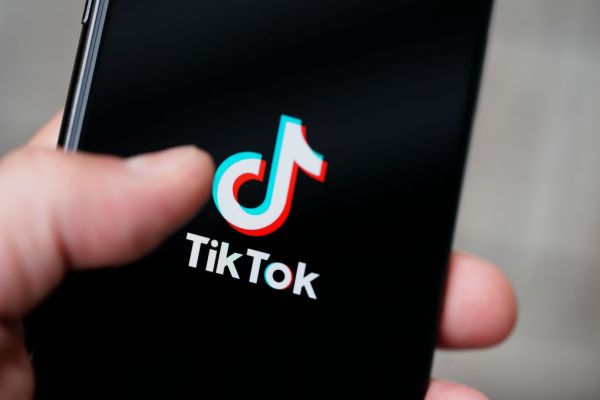In honor of International Holocaust Remembrance Day, TikTok launched a portal on its Discover page this morning, intended to educate users about the historic catastrophe, as well as the ongoing threat of antisemitism. The platform also hosted a similar portal last year.
When users navigate to the Discover page on the TikTok mobile app, they will see a clickable banner acknowledging International Holocaust Remembrance Day. This directs them to a page with three educational TikToks from Jewish creators, including a 98-year-old Holocaust survivor who makes TikToks with the help of her great-grandson. Plus, from now on, when users search terms like “Holocaust” or “Holocaust survivor” on TikTok, they will see a banner prompting them to “consult trusted sources to prevent the spread of hate and misinformation,” directing them to visit a multilingual website about the Holocaust. In the coming months, TikTok will add a similar notice as a permanent banner on videos about the Holocaust. TikTok made these changes in collaboration with UNESCO and the World Jewish Congress, an organization that has been working with the platform since 2020.
This initiative directly addresses Holocaust denial, a false conspiracy theory that the Holocaust didn’t happen. But some Jewish TikTokers think that antisemitism on the platform is a larger, more complex issue that can’t be solved through a few pop-ups on Holocaust content.
A stylist with 74,000 followers, Liv Schreiber partnered with Jewish dating app The Lox Club on an advertisement in November. A week later, she posted a video showing a cascade of antisemitic comments she received each day since posting the video.
“I don’t understand why antisemitism is tolerated,” Schreiber said in her video. “I don’t understand why it doesn’t get taken down. This is non-negotiable, TikTok.”
Conversations about antisemitism on TikTok swelled last April when one trend went viral, in which users would sing “If I Were a Rich Man” from the Jewish musical “Fiddler on the Roof” while using a filter that elongated their facial features, like their nose. For Jewish people on TikTok, this trend evoked a historic stereotype, where antisemitic caricatures depicted Jewish people with exaggerated noses, alongside other harmful antisemitic imagery.
As that trend percolated through TikTok, the platform tried to shine a positive light on the app’s Jewish creators through a tag called #MyJewishHeritage, which the app created to celebrate Jewish Heritage Month in May 2021. TikTok highlighted some posts about Judaism on the Discover page, but the creators who had their content promoted got no warning from TikTok. As a result, some Jewish creators were suddenly flooded with a barrage of antisemitic comments.
TikTok said that the creators featured on this year’s International Holocaust Remembrance Day portal were compensated for their work.
“The issue with TikTok antisemitism is you end up being harassed from all sides,” Ezra, a political TikToker with over 37,000 followers, told TechCrunch. “You have far-right accounts, troll accounts, unintentionally antisemitic accounts that don’t know better, and left-wing accounts that can’t differentiate between Jews and Israel. So cracking down on antisemitism is a multi-pronged issue.”
TikTok has publicly condemned antisemitism on its platform, but public gestures of solidarity like the launch of the new portal might ring hollow for users who have experienced harassment on the platform. It’s also unclear how much time TikTok spent on the effort because when TechCrunch first accessed the Holocaust Remembrance Day portal — several hours after its release at 3 AM ET — its link to report an antisemitic incident to the Anti-Defamation League didn’t work. A few hours later, the issue appeared to be fixed. TikTok has not yet responded to inquiries as to why it launched without a functioning link.
Stephanie Gurewitz (@shachar.mg), a grad student who posts about antisemitism on TikTok, was surprised to see that the International Holocaust Remembrance Day portal only addressed the impact of the Holocaust on Jewish people. Yom HaShoah, a separate day of remembrance, specifically observes the death of six million Jewish people in the Holocaust. But the Nazis also persecuted disabled, homosexual and Romani people, among other marginalized populations.
“This is International Holocaust Remembrance Day, rather than the remembrance day that’s specifically for Jewish people,” Gurewitz told TechCrunch. “Today’s about all victims of the Holocaust, and it doesn’t mention anything about Romani people. There are some things missing there, and that’s an issue.”
They mentioned that they’ve received antisemitic comments on their videos today, too.
“People come on TikTok with biases already, and I don’t think banners are enough to stop that,” they said.
Content moderation on a platform with one billion monthly active users is no easy task. But users regularly get around detection mechanisms through means that are obvious to any regular user — even when talking about something like sexuality, users might write “s3xuality” to avoid being wrongfully flagged as violating guidelines (adult content is a violation; talking about homosexuality, for example, is not). These same tactics are regularly applied by malicious users to send antisemitic messages, which TikTok fails to detect.
“I really am all about TikTok and other social media platforms doing what they can to bring attention to important causes […] When I see that [Holocaust Remembrance] portal, I think of all the meetings they had about it internally, and because of that, I’m grateful,” Schreiber told TechCrunch.
